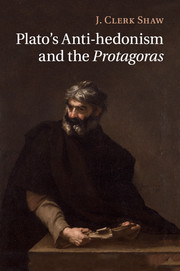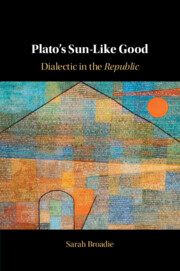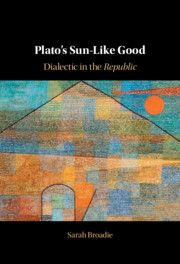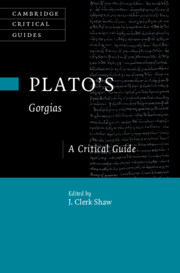Plato's Anti-hedonism and the Protagoras
Plato often rejects hedonism, but in the Protagoras, Plato's Socrates seems to endorse hedonism. In this book, J. Clerk Shaw removes this apparent tension by arguing that the Protagoras as a whole actually reflects Plato's anti-hedonism. He shows that Plato places hedonism at the core of a complex of popular mistakes about value and especially about virtue: that injustice can be prudent, that wisdom is weak, that courage is the capacity to persevere through fear, and that virtue cannot be taught. The masses reproduce this system of values through shame and fear of punishment. The Protagoras and other dialogues depict sophists and orators who have internalized popular morality through shame, but who are also ashamed to state their views openly. Shaw's reading not only reconciles the Protagoras with Plato's other dialogues, but harmonizes it with them and even illuminates Plato's wider anti-hedonism.
- The first book-length, unified treatment of Plato's dialogue the Protagoras
- Sets Plato's attitudes toward pleasure in context, showing how his anti-hedonism lies at the core of his critical project in ethics and politics
- Provides new insights into how Plato saw the relationships between psychology, ethics and politics
Reviews & endorsements
"Shaw’s book is clearly structured and regularly informs readers about the intended aims and the results achieved."
Bernd Manuwald, Bryn Mawr Classical Review
'… this book deserves careful attention. It offers a combination of close readings of some important passages with an eye to both argumentative structure and dramatic presentation. It also steps back from the minutiae of line-by-line analysis to consider more general questions about how Plato uses these presentations of dialectical encounters to score points against both his sophistic rivals and also the Athenian people more generally.' James Warren, Polis: The Journal for Ancient Greek Political Thought
'Shaw offers an incisive diagnosis of popular double-think, as he calls it, which balances the incoherent complex of commitments to hedonism, to the possibility of akrasia and to the belief that injustice is prudent, i.e. in one's own self-interest to do.' Vanessa de Harven, Notre Dame Philosophical Reviews
Product details
March 2018Paperback
9781107624658
230 pages
230 × 153 × 13 mm
0.36kg
Available
Table of Contents
- Introduction
- 1. Against hedonist interpretations of the Protagoras
- 2. Courage, madness, and spirit at 349d-51b
- 3. Drama and dialectic in Plato's Protagoras
- 4. Drama and dialectic in Plato's Gorgias, revisited
- 5. Shame, internalization, and the many
- 6. Hedonism, hedonic error, and ethical error
- 7. Hedonist misconceptions of virtue
- 8. Popular hostility to Sophists and philosophers.






